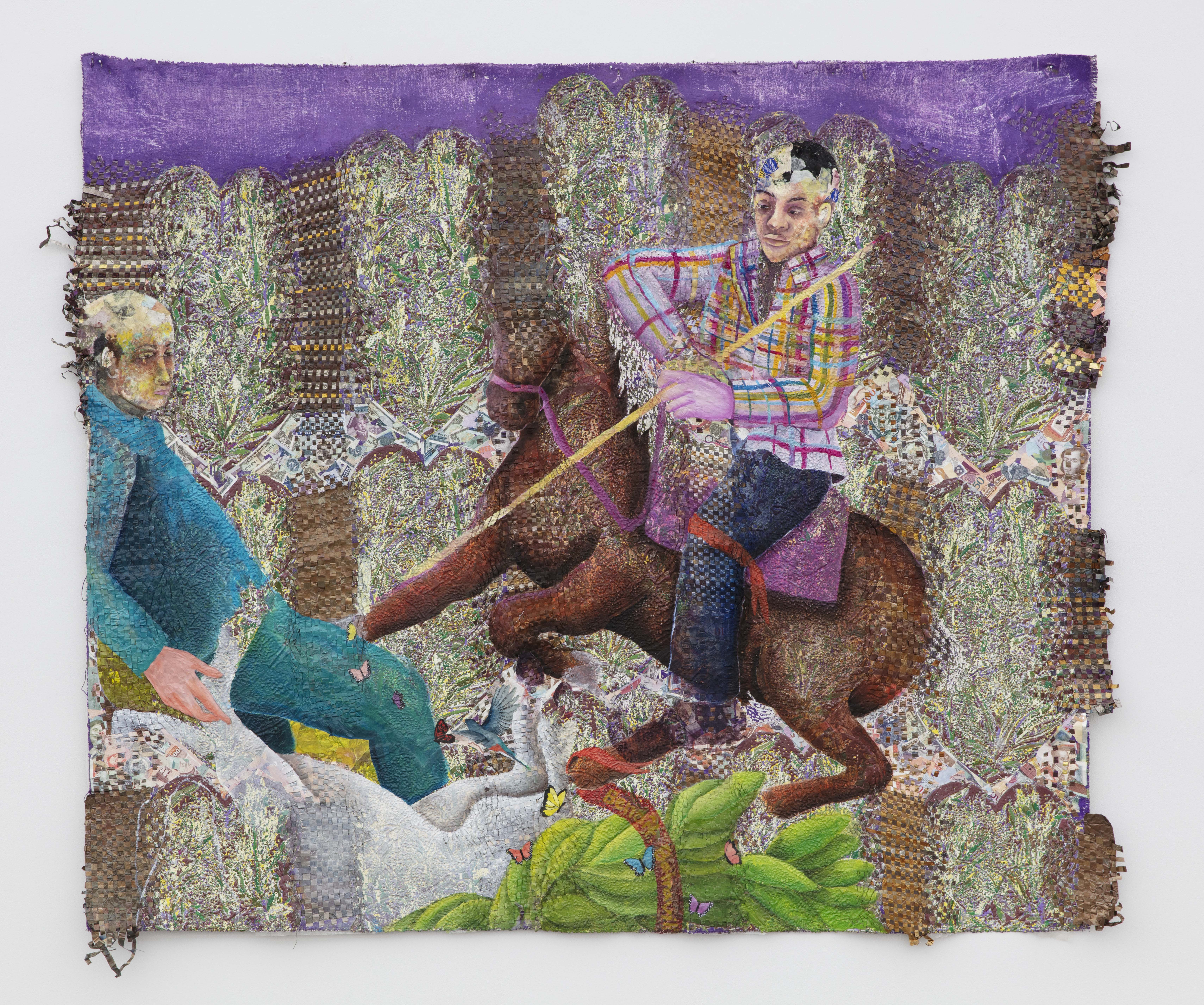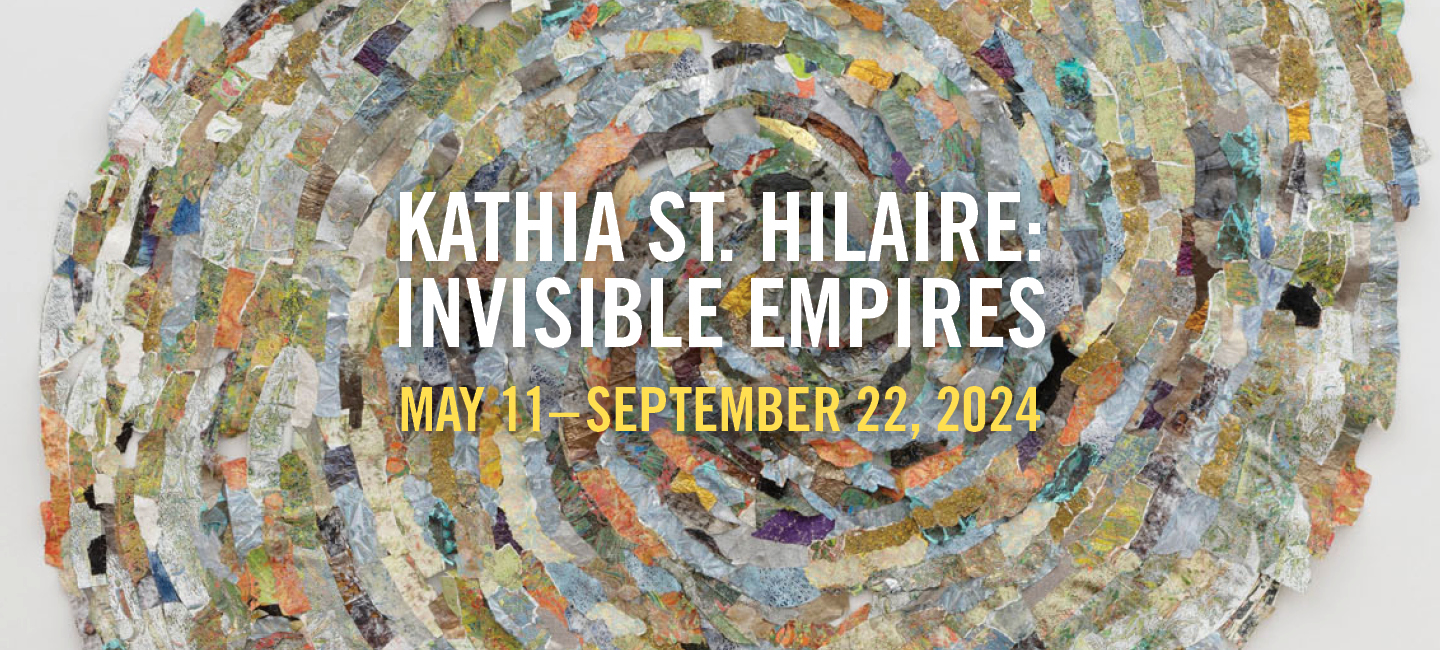ABOUT THE EXHIBITION
.jpg) Kathia St. Hilaire, Caco: Benoît Batraville, 2023, Reduction linocut in oil-based ink on canvas with skin-lightening cream packaging, steel, aluminum, banknotes, banana stickers, paper, and tires. Courtesy of the artist and Perrotin. Photo by Guillaume Ziccarelli
Kathia St. Hilaire, Caco: Benoît Batraville, 2023, Reduction linocut in oil-based ink on canvas with skin-lightening cream packaging, steel, aluminum, banknotes, banana stickers, paper, and tires. Courtesy of the artist and Perrotin. Photo by Guillaume Ziccarelli
Kathia St. Hilaire’s distinctive practice combines printmaking, painting, collage, and weaving. By building up as many as forty or fifty layers of ink using carved linoleum blocks, St. Hilaire (b. 1995, West Palm Beach, Florida; lives and works in New York) creates striking surface textures. The substance of her work is equally layered: the artist, whose parents immigrated to the United States from Haiti, tells stories of the island nation’s history and the long shadows it casts, from French colonialism to independence, from U.S. occupation to the diasporic communities in which she was raised. The exhibition’s subtitle, Invisible Empires, refers to the legacy of foreign interventions in the Caribbean and the persistence of subtler forms of imperialism today.
Kathia St. Hilaire grapples with histories that have been forgotten or actively suppressed. In recounting them, she blends established facts with the larger-than-life legends of Haiti’s leaders in a manner she describes as “magical realist.” To represent Creolized cultures, St. Hilaire uses a collage of nontraditional materials, from banknotes and banana stickers to product packaging and car tires. Like the open weaving at the edges of her work, the artist suggests, the Haitian revolution is itself an unfinished project—in particular amidst the country’s current tumult. Contained within these vibrant, dreamlike pictures are past, present, and the suggestion of possible futures.
Kathia St. Hilaire: Invisible Empires is on view in the Lunder Center at Stone Hill.
This exhibition is organized by the Clark Art Institute and curated by Robert Wiesenberger, curator of contemporary projects at the Clark, with Tyler Blackwell, curator of contemporary art at the Speed Art Museum, Louisville, Kentucky.
Generous support for this exhibition is provided by Thomas and Lily Beischer, Richard and Margaret Kronenberg, and Denise Littlefield Sobel.
